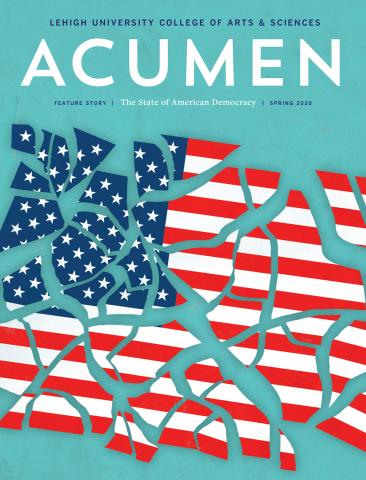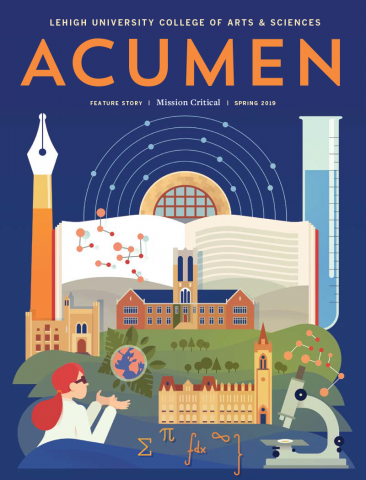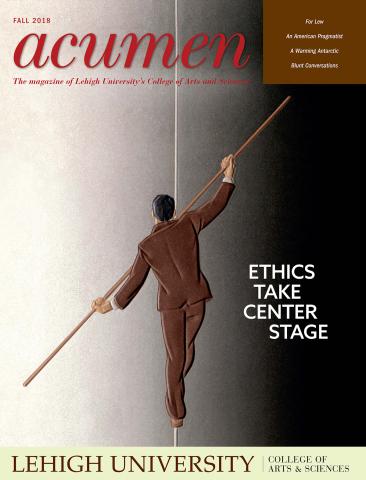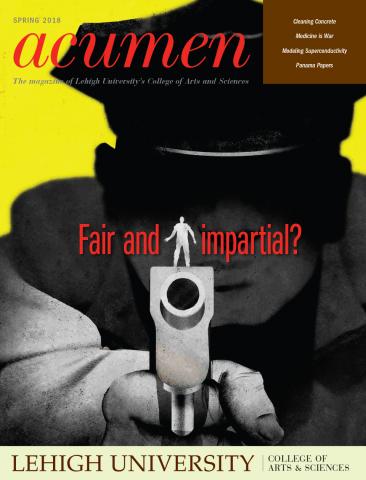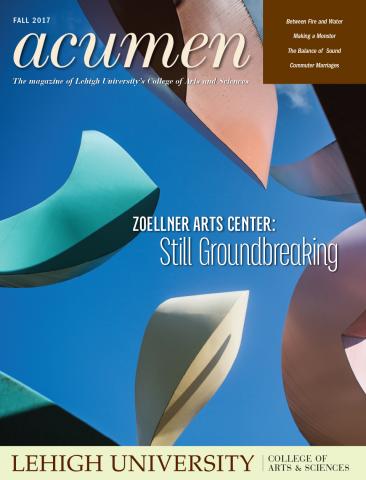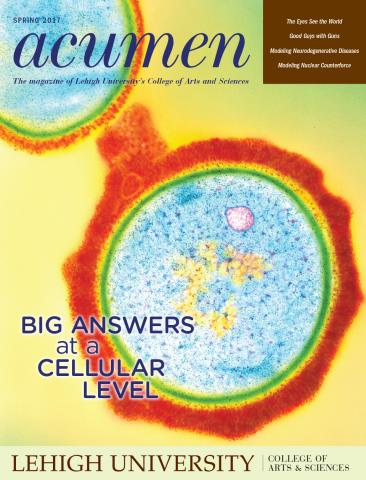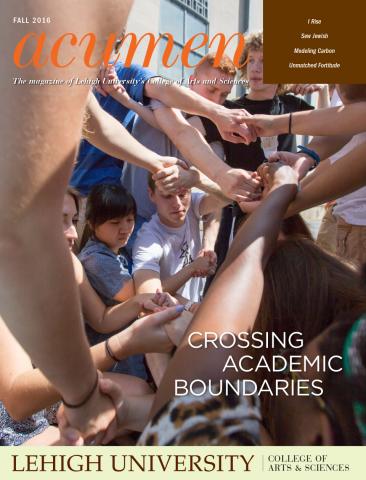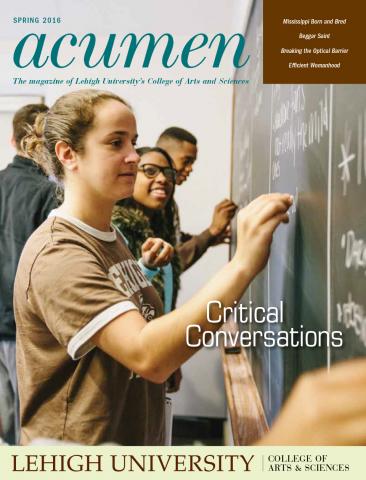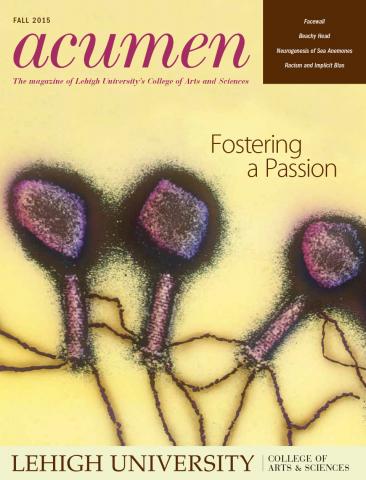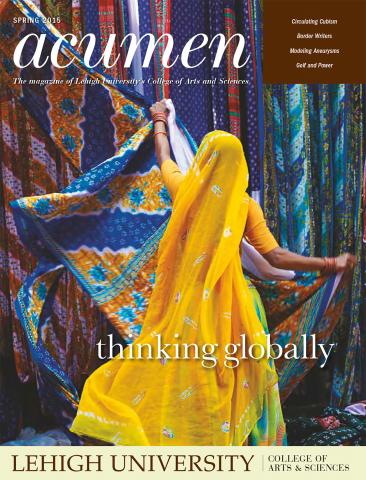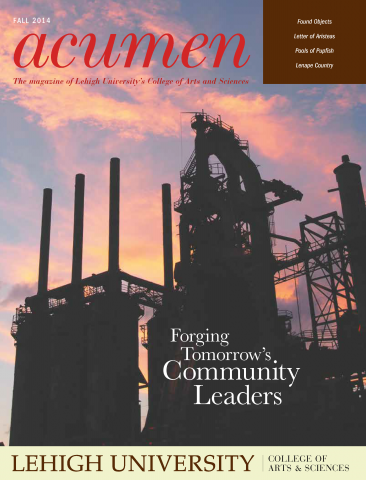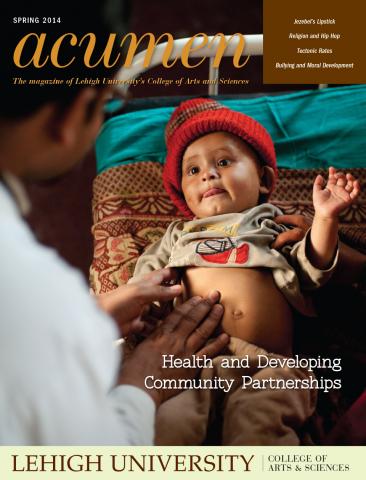
This issue examines the impact of interdisciplinary education in the College of Arts and Sciences
Dear friends,
Welcome to the fall semester and latest edition of Acumen. As this issue developed I was again excited and proud of the research and creative work taking place within the College of Arts and Sciences. The college remains a lively center of learning, and students are exposed to a wide variety of scholarship through talented, energized faculty.
Student interest in Interdisciplinary education is growing at Lehigh and the college continues to promote curricula and programs that cross traditional academic boundaries. Interdisciplinary work requires students and faculty to work with a broad array of knowledge suited to complex global problems. Many of us graduated from college with degrees from traditional academic departments, but interdisciplinary education recognizes that many of today’s social, cultural, and economic challenges require that we reach for creative solutions that approach problems from numerous perspectives. Students and faculty find that interdisciplinary studies require them to stretch beyond their comfort zones and exercise flexibility in thinking through the application of a multiplicity of methods and theoretical traditions. The College of Arts and Sciences has 20 interdisciplinary programs in areas as diverse as health, medicine, and society, Africana studies, cognitive science, sustainable development, and Asian studies. Through interdisciplinary studies, students:
- Discover the value of integrating the study of various academic disciplines suited to their life-long interests;
- Become interdisciplinary thinkers who analytically and creatively embrace new ideas;
- Develop collaborative abilities while working with others who have different perspectives; and
- prepare for graduate and professional study, and for careers in new and emerging fields.
These are the characteristics that help us face the compelling issues of our day. In the following pages you will discover a sampling of the work taking place throughout the college. Sociologist Kelly Austin is leading the health, medicine, and society program, which examines the connections between health and society. Michael Quesada ’16G explores the politics and policies driving water use of the Colorado River as part of the environmental policy design program, while undergraduate student Jenna Pastorini studies a trauma-based cultural syndrome in Cambodia as part of the cognitive science program. Alumna Carrie Rich ’07 took her science, technology, and society degree and parlayed it into a company accelerating the leadership development of entrepreneurs across the globe.
Interdisciplinary programs at Lehigh helps students fuse many ideas and characteristics, and they leave campus with practical skills that are immediately applicable in the workplace. I am continually motivated and strengthened by the faculty, staff and students within the college who are committed to interdisciplinary learning. I invite you to learn more about how alumni can play a role in these types of programs. As Lehigh alumni, you can help shape the future of today’s, and tomorrow’s, students.
I look forward to hearing your thoughts and comments.
Sincerely,
Donald E. Hall
Herbert and Ann Siegel Dean






















